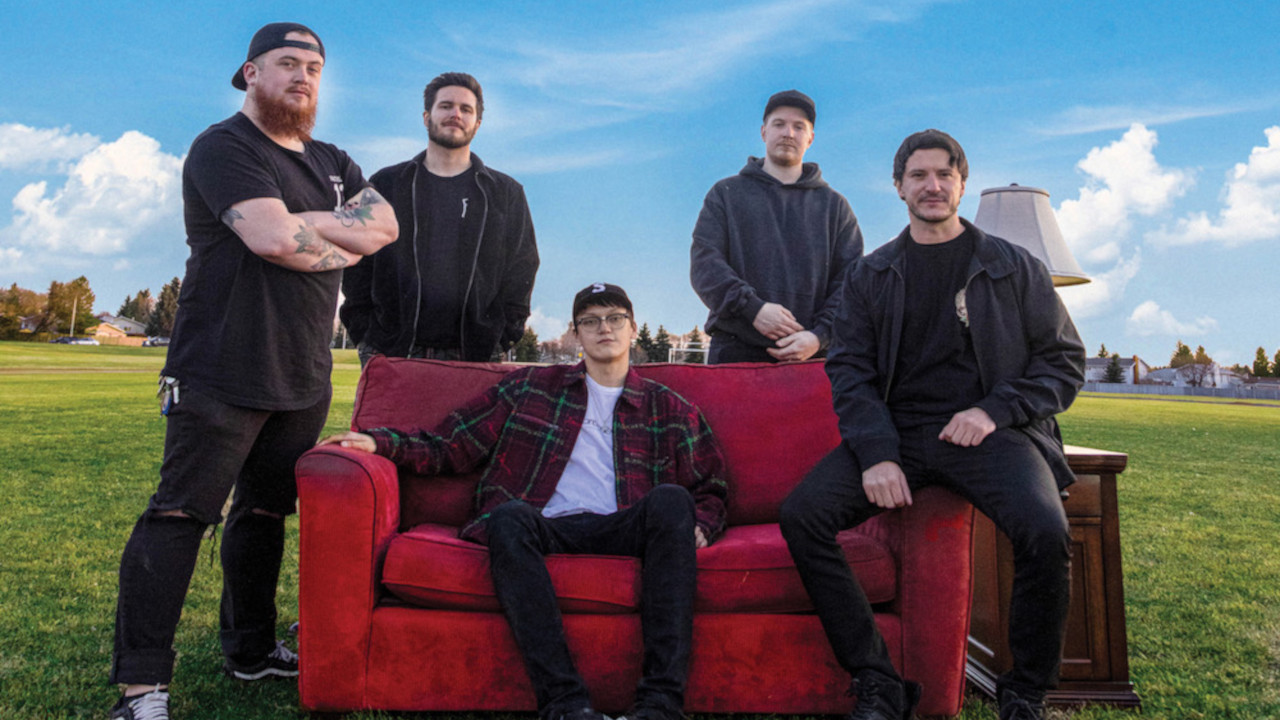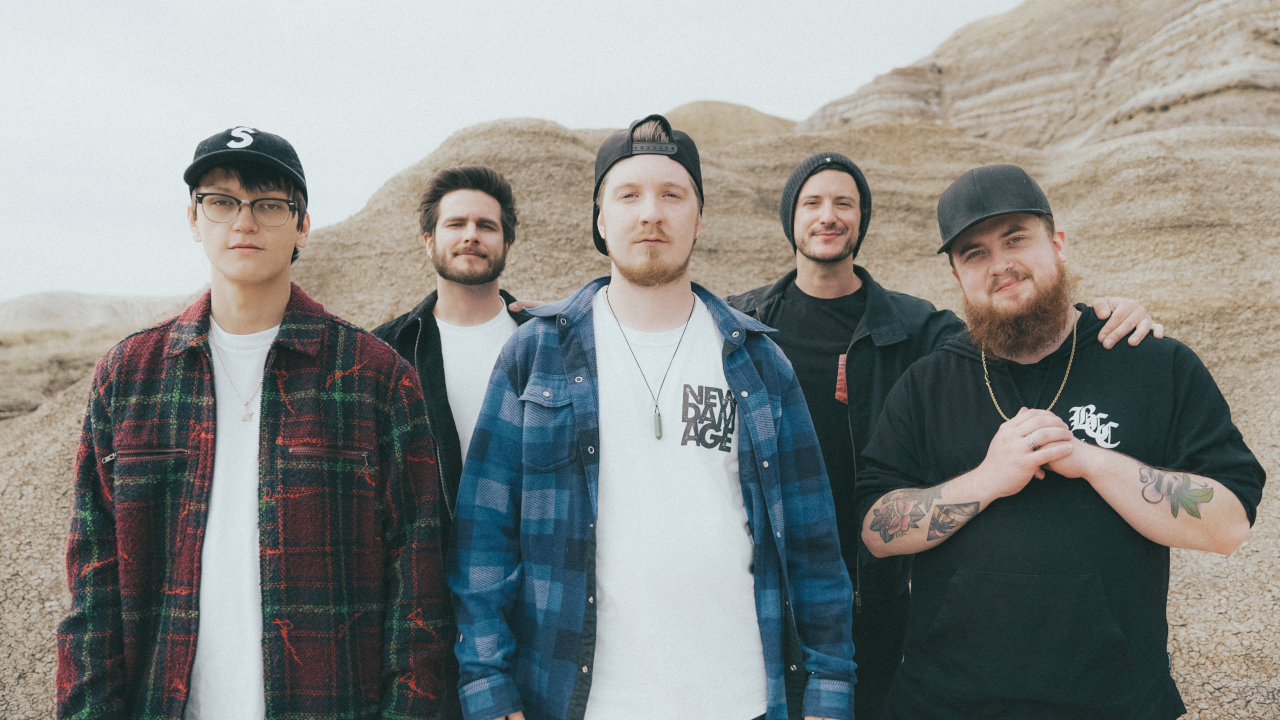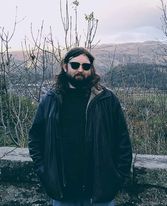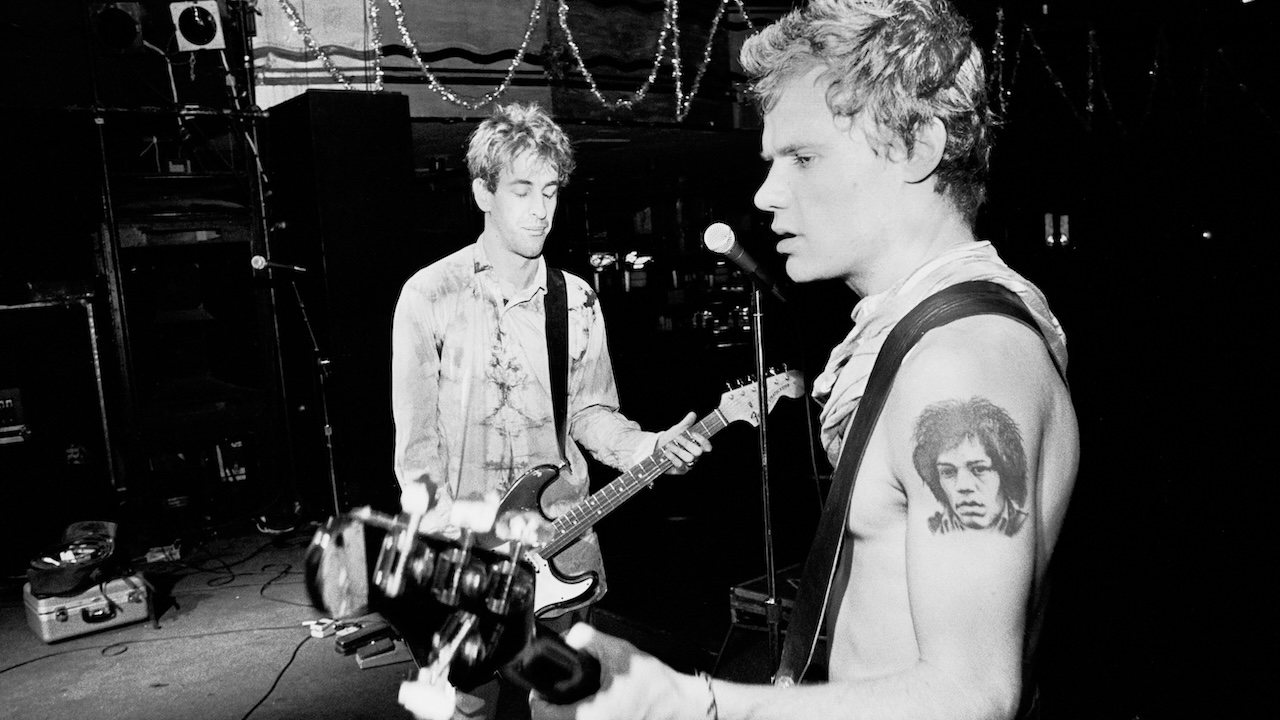Calling All Captains: "Indigenous Canadian people are here... listen to us"
Meet Calling All Captains – the band fusing pop-punk, metalcore and post-hardcore who are fighting for Canada's Indigenous Peoples

Select the newsletters you’d like to receive. Then, add your email to sign up.
You are now subscribed
Your newsletter sign-up was successful
Want to add more newsletters?

Every Friday
Louder
Louder’s weekly newsletter is jam-packed with the team’s personal highlights from the last seven days, including features, breaking news, reviews and tons of juicy exclusives from the world of alternative music.

Every Friday
Classic Rock
The Classic Rock newsletter is an essential read for the discerning rock fan. Every week we bring you the news, reviews and the very best features and interviews from our extensive archive. Written by rock fans for rock fans.

Every Friday
Metal Hammer
For the last four decades Metal Hammer has been the world’s greatest metal magazine. Created by metalheads for metalheads, ‘Hammer takes you behind the scenes, closer to the action, and nearer to the bands that you love the most.

Every Friday
Prog
The Prog newsletter brings you the very best of Prog Magazine and our website, every Friday. We'll deliver you the very latest news from the Prog universe, informative features and archive material from Prog’s impressive vault.
Calling All Captains may find their roots in pop-punk, but the Canadian band don't buy into the 'hate our hometown' cliché - if anything, it's quite the opposite. "Having toured across Canada, the US and the UK, we’ve never found anywhere as welcoming as our local scene," bassist Nick Malychuk proudly says. "There have been some great bands that came out of Edmonton and the key players are still around helping new bands come through today."
Influenced by Blink-182 and "bands of that generation", Calling All Captains formed in 2014 inspired by local acts like Ten Second Epic and The Red Threat who were bringing a taste of Warped Tour to suburban Canada. "I went to a Red Threat show and thought 'if these guys can do something this good while coming from here why can't I?" Malychuk says.
Though he describes the band's early years as "an up-hill battle" ("there's a reason our EP was called Nothing Grows Here – people told us nobody would give a shit about a Canadian pop-punk band!"), the band nonetheless managed to land spots on The Warped Tour as well as headline tours across the US, Canada and even the UK.
A line-up shift after the release of Nothing Grows Here saw drummer Luc Gauthier step away from the kit to become their new vocalist and their sound evolved to incorporate more post-hardcore and metalcore elements that put them decidedly more in the wheelhouse of Beartooth and A Day To Remember than Sum 41 or Blink. As its title suggests, the band's debut album Slowly Getting Better sees them after a period of enormous upheaval and difficulty, transforming personal trauma into communal empowerment.
As it turns out, this empowerment also stretches to the band's work outside of music. Gauthier is Métis (one of three recognised Aboriginal peoples of Canada) and passionate about highlighting issues that face Canada's indigenous communities. While such issues haven't yet bled into the band's music ("I don't feel like I'm ready to sing about these things right now," he admits), the band are still keen to set the record straight on a few things.
“Currently there is a call to action and an act put in place by the Canadian government to begin reconciling with the Indigenous Peoples of Canada," Gauthier says. "The most recent discovery is the number of children who were put into mass graves as a result of the residential schools spreading into America as well. Many children lost their lives and never came back to their communities. We are a band often looking to highlight that Indigenous people are here and listening to us means that we have a direct channel to spread awareness and bring real change to people's mindsets so we don't let it continue.”
Hammer caught up with both Malychuk and Gauthier to get the story so far and find out why visibility is so crucial for Canada's Indigenous communities.
The latest news, features and interviews direct to your inbox, from the global home of alternative music.

In your own words, who are Calling All Captains?
Nick Malychuk: “We’ve been a band for 8+ years at this point, but listening back on a load of our old stuff I don’t think we’re the same people as we were when we wrote our first few EPs. When we signed a record deal we didn’t even have a vocalist or proper line-up, it was very much a ‘fake it until you make it’ situation. Our original singer Mike [Millan] walked away from the band after we’d just finished a tour of the UK, but we were in an upswing so knew we wanted to continue with that, so Luc [Gauthier, vocalist] jumped from behind the kit to fronting the band for some demos while we shopped around a bit.
After we released the Nothing Grows Here EP we got invited to do a showcase for Victory Records and that's where everything really started to come together. Slowly Getting Better touches on a lot of personal and sensitive topics; there’s discussion of addiction, self-harm and general themes of not being okay and finding ways of coping with loss and death in any form. As a band and as people, we were forced to grow."
How does Slowly Getting Better address that growth?
Malychuk: "I hit a real low point just after the record was finished. Not being able to tour, not being able to see friends and also being unemployed at that point, because I usually work in schools and they were all closed due to the pandemic, I was in a really bad place and then my ex-fiancé left me. Everything happened at once and I didn’t know how to deal with it.
I went to therapy and just finding someone to be able to express those thoughts and feelings to felt great. Fortunately we didn’t have anything going on at the time and I’ve been able to build myself back up as a person. The songs mean a whole lot more to me now too, especially because I can see now there are things I was going through that I wasn’t really addressing.”
Are you thankful in a way then that the pandemic gave you a chance to breathe and heal?
Malychuk: “Yes and no; if the pandemic hadn’t been happening I think I’d have been able to find things to distract myself with. At the same time, I think I’d have suppressed a lot more of my emotions and had much bigger problems down the line. It was cool in a way – beneath my therapist's usual doctor clothes he’d got this Metallica tattoo, so there were times where I’d go over and we’d speak then he’d put on Ride The Lightning and we’d connect with that. If it wasn’t for the pandemic I wouldn’t have hit the low, but without it I don’t think I could have climbed to the high I’m now at.”
What does Luc bring to the band as a vocalist?
Malychuk: “He wears his heart on his sleeve, 100%. Nothing he’s doing isn’t genuine, he deals with things in a very open way which is good for us because as a band we’re more prone to closing off. My outlet through all of this has been therapy and quitting drinking for a hot minute, but Luc’s outlet is writing. As a vocalist he’s willing to push his voice as hard as he can, he’s almost reckless in that he’ll blow his voice, smoke about it and the next day it’s all fine. I don’t understand it!"
Luc, were you nervous moving from drums to vocals?
Luc Gauthier: “I was absolutely terrified, I had never sung as a frontman before this – I'd only ever done back-ups here and there. There was such an immense amount of pressure to live up to our previous vocalist. I realised I couldn’t sing anything like him which is why the vocal style had changed so much with the change. I remember breaking down in the studio and I had the fellas all huddle around me cheering me on. I wouldn’t have the confidence I do without the fellas.”
What are the biggest challenges you’ve faced as a band?
Malychuk: “Being from Canada. There are a lot of opportunities that I wouldn’t say we’ve missed, but that we’ve had to work a whole lot harder for because we’re from here. But there are difficulties in being a Canadian band during the pandemic, too. I just paid $4,000 for a visa to tour the US for seven weeks with Beartooth.”
What are the biggest challenges you’ve faced individually?
Gauthier: “Singing for a solid hour on stage while running around. With this new record we have increased our set time by 3 times. It’s been increasingly demanding to sing all of these songs at 100%. Doing it in the studio is one thing but jumping around live is a whole different beast.”
Malychuk: “I didn’t have coping mechanisms until I went to therapy; I’d drink and bottle things up instead and I remember getting into a screaming match with Tim [Wilson, drums] in New York because we’d played something like 40 shows straight at that point and had some shows that hadn’t been the best, so I snapped. But now I’ve got an amazing support network with my wife and friends, people checking in all the time that really makes it a lot easier and better to deal with issues instead of bottling it up.”
What are your stand-out memories in Calling All Captains?
Malychuk: “Since I handle most of the band’s business, I don’t get to do most of the cool things bands do! The Warped Tour show was awesome – we played to 350 kids at like 1pm because there were no other pop-punk bands on at that point and I just thought ‘it can’t get better than this’. Fast-forward a year and I’m on a plane flying to the UK for the first time. Some of those shows were busted, we played Sticky Mike’s Frog Bar in Brighton on the night of the Brexit vote and there wasn’t a single person there. I think Code Orange were playing like their only headline show across the street, so we had no shot, but we didn’t care! We got to open for The Offspring in our hometown a few years ago. I’m still mentally an 18-year-old kid living his dream.”

Luc, how does your heritage inspire or affect the music you make?
Gauthier: "Musically and lyrically, I wouldn’t say it does. Maybe we’ll touch on it more in the future, but it's a pretty deep subject I am not necessarily ready to sing about. At the same time, we are strong advocates for Indigenous rights and freedoms and use our platform to talk about the issues we’re still facing today so in that way it still has a huge impact."
Historically, what has been the treatment of Indigenous Canadians?
Gauthier: “Historically it hasn’t been very good at all. An estimated 16 million Indigenous people’s lives were taken with the settling of North America. The ones that did survive had to live under the growing control of the early Canadian Government holding claims for land that was lived on for generations previous.
When land was taken and placed under the Crown some communities were offered reservations as a way to keep some of their traditions (away from the brick-and-stone of modern communities). These reservations were given ‘Indian Officers’ to allow First Nations people to leave their reserve under strict rules and regulations. Children were also taken from their homes and placed in ‘residential schools’. Which were meant to ‘get rid of the Indian’ inside them and assimilate the kids into society with no knowledge of their indigenous culture.”
What issues face Indigenous Canadians today?
Gauthier: “I would say it’s the lack of cultural connection. The families of those who went to residential schools are experiencing generation trauma unlike anything before. There is still lots of prejudice towards the indigenous communities from non-indigenous people. It can be as small as a backhanded statement like ‘you’re pretty cool, for a native guy.’”
What do you see as being the biggest misconception about the Indigenous Canadian community?
Gauthier: "I think it's purely lack of education and awareness about the cultures and traditions, as well as acknowledging the historically traumatic past. I participated in a video explaining my cultural dance called “History of The Métis Jig”. I would encourage everyone to check it out to learn more about the Métis/Indigenous culture."
What do the recent discoveries of mass graves mean to the community and what can be done to address the issue?
Gauthier: “As of now its nearing 7000 bodies discovered at the residential school. It's absolutely harrowing that the Canadian Government and Catholic Church not only put these schools and reservation programs in place, but only changed it within the past couple decades. The last residential school was closed in my lifetime. The one thing we can all do to help the situation is learn and educate others. Advocate for those who may not have a voice within your own life.”
Slowly Getting Better is out now via Rude Records/Equal Vision
Staff writer for Metal Hammer, Rich has never met a feature he didn't fancy, which is just as well when it comes to covering everything rock, punk and metal for both print and online, be it legendary events like Rock In Rio or Clash Of The Titans or seeking out exciting new bands like Nine Treasures, Jinjer and Sleep Token.

